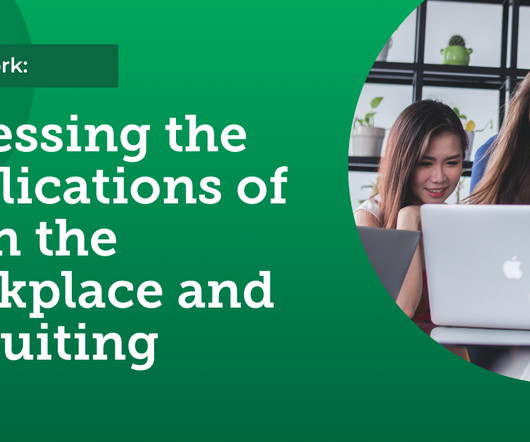AI at Work: Assessing the implications of AI in the workplace and recruiting
Social Talent
OCTOBER 2, 2023
And the potential impact is truly immense: PwC estimates that by 2030, AI could contribute a staggering $15.7 On the plus side, there are many benefits: Build perfect banks of screening and interviewing questions. trillion to the global economy, largely driven by increased productivity. Yes and no seems to be the answer right now.














Let's personalize your content